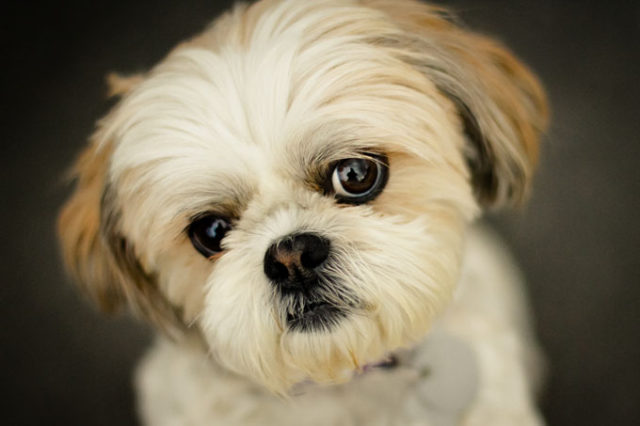DO YOU KNOW YOUR SHIH TZU?
~ by Nomi Berger
The Shih Tzu may have several names, including Chinese Lion Dog, Lion Dog and Chrysanthemum Dog, but they all add up to the same thing. One very adorable, personable, often stubborn but always loyal and loving companion.
With his sweet-natured temperament, the Shih Tzu is less demanding and less yappy than most toy breeds. Alhough solidly built and lively, his exercise needs are few – some short walks each day or some brief romps in the yard. Primarily a lover of comfort and attention, what this breed enjoys most is cuddling on laps and snuggling into soft pillows.
Friendly and feisty, these small, flat-faced, silky coated sweethearts are usually trustworthy around older children, but their small size puts them at risk for unintentional injury around toddlers and very young children.
Shih Tzu are generally healthy dogs, living to 15 years or more, but like every dog breed, they have their own distinct temperament and are prone to certain conditions and diseases.
Because a Shih Tzu is difficult to housebreak, consistency is key, and crate training an essential aid. Never let a puppy roam your place unsupervised until completely housetrained.
A Shih Tzu seems particularly prone to eating his or other dogs’ feces. Monitoring your dog’s behavior and cleaning up his poop promptly will prevent this from becoming a habit.
The dense, double coat of a Shih Tzu should be combed or brushed daily to keep shedding and matting to a minimum.
The Shih Tzu tends to snore, wheeze and reverse sneeze, and the flatness of his face makes him susceptible to heat stroke (the air entering his lungs isn’t cooled as efficiently as in longer-nosed breeds). It’s wise to keep your Shih Tzu indoors in air-conditioned rooms during hot weather. And walk him in a Y-shaped harness that wraps around his chest, not his throat. A collar puts pressure on his windpipe and makes it harder for him to breathe.
Reverse sneezing can occur when a Shih Tzu suffers from allergies, becomes overly excited, or gulps food too quickly. Nasal secretions drop onto the soft palate, causing it to close over the windpipe, creating that wheezing sound. Some experts suggest the fastest way to stop this is to pinch your dog’s nostrils closed, thereby forcing him to breathe through his mouth.
Because of their undershot jaws, Shih Tzu are prone to dental and gum problems, such as retained baby teeth, missing and misaligned teeth, and must have their teeth brushed and vet checked regularly.
The drop ears of the Shih Tzu create a dark and warm ear canal, leaving them prone to infection. To help prevent this, check and clean your dog’s ears weekly and keep him on a grain-free diet.
Eye problems are not uncommon among Shih Tzu because of their large, bulging eyes. These disorders include keratoconjunctivitis sicca, or dry eye (a dryness of the cornea and the conjunctiva), distichiasis (abnormal growth of eyelashes on the margin of the eye, resulting in the eyelashes rubbing against it), proptosis (the eyeball is dislodged from the eye socket and the eyelids clamp shut behind the eyeball), keratitis (inflammation of the cornea that can lead to a corneal ulcer and blindness), and progressive retinal atrophy (degenerative disease of the retinal visual cells leading to blindness).
Also common are bladder stones and bladder infections, hip dysplasia (abnormal formation of the hip socket possibly causing pain and lameness) and patellar luxation, (dislocation of the kneecap), in which the knee joint slides in and out of place, causing pain and again, possible lameness.
Health concerns aside, the Shih Tzu simply doesn’t care where he lives, as long as he’s with you. A highly adaptable dog, he can be equally comfortable in a small city apartment, a large suburban home or a cozy country cottage.
If you want a dog who lives to love and be loved, whose primary characteristic is affection, and whose favorite destination is your lap, look no further than the Shih Tzu cuddled next to you.

